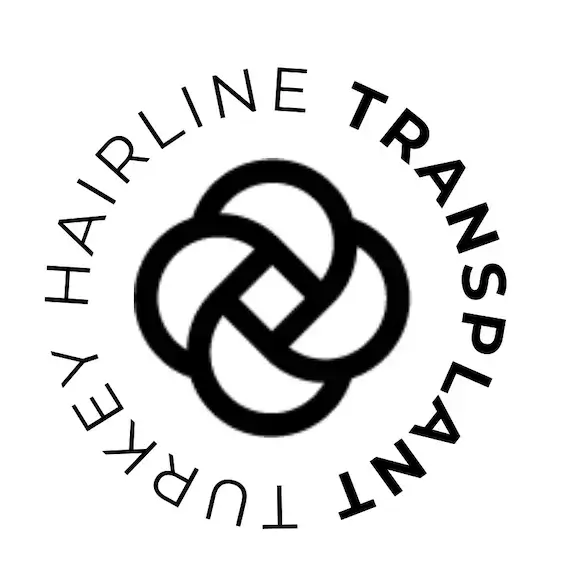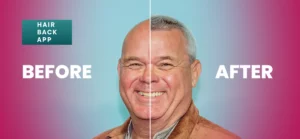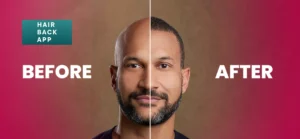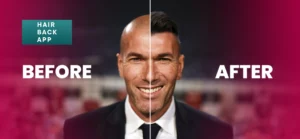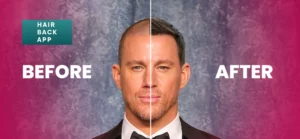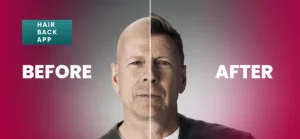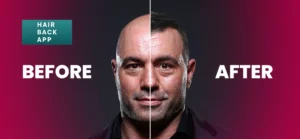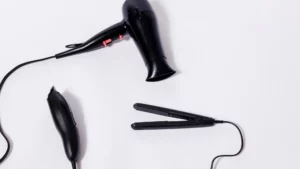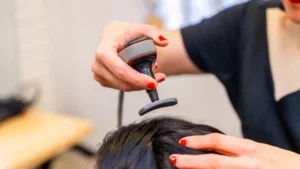Nutrition in Hair Growth and Health plays a critical role in maintaining and enhancing the vitality of your hair. Just like every other part of your body, your hair requires specific nutrients to grow strong and healthy.
My name is Emma Wright, your resident hair loss and restoration specialist. Today we will look at a comprehensive guide on the role of Nutrition in Hair Growth, key nutirents, food and supplements for a healthy hair growth
A well-balanced diet can help prevent hair loss, promote new growth, and maintain the overall health of your scalp and hair. Let’s explore how the right nutrition can influence hair health and the key nutrients involved in this process.
What is Nutrition in Hair Growth and Health
Nutrition in hair growth and health refers to the essential role that vitamins, minerals, and other nutrients play in maintaining and enhancing the vitality of hair. Proper nutrition supports the hair growth cycle, prevents hair loss, and promotes a healthy scalp.
Key nutrients include vitamins A, B, C, D, and E, as well as minerals like iron, zinc, and protein. These nutrients help in cell growth, blood circulation, and the production of sebum, which keeps hair moisturized.
Consuming a balanced diet rich in eggs, berries, spinach, fatty fish, nuts, and avocados can significantly improve hair health. Supplements like biotin, fish oil, and multivitamins can also fill nutritional gaps. Focusing on a nutritious diet not only benefits hair but also overall well-being, making it a crucial aspect of personal health care.
Key Nutrients: Vitamins and Minerals Essential for Healthy Hair
To ensure your hair grows strong and healthy, you need a diet rich in essential vitamins and minerals. Here are some of the most important ones:
Vitamin A
Vitamin A is crucial for cell growth, and this includes hair cells. It helps the scalp produce sebum, which keeps hair moisturized and healthy. Foods rich in vitamin A include sweet potatoes, carrots, and spinach.
B-Vitamins
B-vitamins, particularly Biotin (Vitamin B7), are known for their role in hair health. They help carry oxygen and nutrients to your scalp, promoting hair growth. You can find B-vitamins in whole grains, almonds, meat, fish, and dark leafy greens.
Vitamin C
Vitamin C is a powerful antioxidant that helps protect hair from oxidative stress caused by free radicals. It also aids in the production of collagen, which strengthens hair. Citrus fruits, strawberries, and bell peppers are excellent sources of Vitamin C.
Vitamin D
Vitamin D is linked to hair follicle health. A deficiency in this vitamin can lead to hair loss. Sunlight is a great source of Vitamin D, but you can also get it from fatty fish, fortified dairy products, and egg yolks.
Vitamin E
Vitamin E is another antioxidant that helps prevent oxidative stress. It also aids in blood circulation, which is essential for hair growth. Nuts, seeds, and green leafy vegetables are rich in Vitamin E.
Iron
Iron deficiency is a common cause of hair loss. Iron helps red blood cells carry oxygen to your cells, including hair follicles. Good sources of iron include red meat, spinach, lentils, and fortified cereals.
Zinc
Zinc plays a vital role in hair tissue growth and repair. It also helps keep the oil glands around the hair follicles working properly. Foods high in zinc include oysters, beef, pumpkin seeds, and lentils.
Protein
Since hair is made up of a protein called keratin, consuming enough protein is crucial for hair growth. Protein-rich foods include eggs, nuts, beans, fish, and chicken.

Foods to Include: Best Foods to Support Hair Growth
Incorporating nutrient-rich foods into your diet can significantly boost hair health. Here are some top foods to include:
Eggs
Eggs are a great source of protein and biotin, both of which are essential for hair growth. They also contain zinc and selenium, making them a powerhouse for healthy hair.
Berries
Berries are packed with antioxidants and vitamins like Vitamin C that can promote hair growth. They help protect hair follicles against damage from harmful molecules.
Spinach
Spinach is loaded with beneficial nutrients like folate, iron, and vitamins A and C, all of which are essential for hair growth. Iron helps red blood cells carry oxygen to your hair follicles, aiding in growth and repair.
Fatty Fish
Fatty fish like salmon, mackerel, and herring are excellent sources of omega-3 fatty acids, which are linked to hair growth. They also contain Vitamin D and protein, both beneficial for hair health.
Sweet Potatoes
Sweet potatoes are rich in beta-carotene, which the body converts into Vitamin A. This vitamin promotes the production of sebum, keeping hair healthy and moisturized.
Nuts and Seeds
Nuts and seeds provide a variety of nutrients such as Vitamin E, zinc, and selenium. They also offer essential fatty acids that can promote hair growth.
Avocados
Avocados are rich in Vitamin E and healthy fats. Vitamin E helps improve blood circulation, which in turn promotes hair growth.
Supplements: When and What Supplements Might Be Beneficial
While a balanced diet should provide most of the nutrients needed for healthy hair, supplements can help fill any gaps. Here are some supplements that might be beneficial:
Biotin
Biotin supplements are popular for hair growth. They help strengthen hair and improve its texture. However, it’s essential to consult a healthcare provider before starting any supplement regimen.
Fish Oil
Fish oil supplements are rich in omega-3 fatty acids, which can nourish hair and support growth. They also help reduce inflammation, which can affect hair health.
Multivitamins
A good multivitamin can provide a broad range of essential nutrients that support overall health and hair growth. Look for ones that include vitamins A, B, C, D, E, and minerals like iron and zinc.
Vitamin D
If you are not getting enough sunlight, a Vitamin D supplement can help maintain hair follicle health. Always check with a healthcare provider to determine the appropriate dosage.
Iron
Iron supplements can be beneficial if you have a deficiency. Low iron levels are a common cause of hair loss, particularly in women.
Dietary Myths: Common Misconceptions About Diet and Hair Health
There are many myths and misconceptions about the relationship between diet and hair health. Let’s address some of the most common ones:
Myth 1: Only Supplements Can Improve Hair Health
While supplements can help, they should not replace a healthy diet. Whole foods provide a range of nutrients that work together to promote hair growth and overall health.
Myth 2: Greasy Foods Cause Hair Loss
Greasy foods do not directly cause hair loss. However, a diet high in unhealthy fats can lead to poor nutrition, which can affect hair health.
Myth 3: Cutting Hair Makes It Grow Faster
Hair growth occurs from the follicles on your scalp, not from the ends. Trimming can prevent split ends and breakage, making hair appear healthier, but it doesn’t influence growth rate.
Myth 4: Washing Hair Daily Causes Hair Loss
Washing hair daily does not cause hair loss. However, using harsh shampoos or not conditioning properly can damage hair and lead to breakage.
Myth 5: Only Women Need to Worry About Hair Health
Hair health is important for both men and women. Men also experience hair loss and thinning, and they need to maintain a balanced diet to support healthy hair.
Conclusion
Nutrition in Hair Growth and Health is pivotal for maintaining strong, healthy hair. By focusing on a balanced diet rich in essential vitamins and minerals, you can significantly improve your hair’s vitality and growth.
By maintaining a balanced diet, you can support your hair growth cycle and ensure that your hair remains strong and vibrant. Whether you’re considering the cost of hair transplant, maintaining your new hairline, or exploring the differences in hairline transplant men vs women, remember that good nutrition is a cornerstone of healthy hair.
Understanding myths and misconceptions about hair transplant and focusing on the right nutrients can make a significant difference in your hair health journey.
Incorporate foods like eggs, berries, spinach, fatty fish, and avocados into your diet, and consider supplements if necessary. Remember, it’s essential to address myths and misconceptions to ensure you are following the best practices for hair health.
Lastly, a holistic approach to nutrition and overall wellness will not only benefit your hair but also your entire body.
